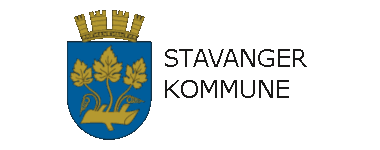Universities and the Geography of Innovation III
Room: Energy Hall 3
Chair: Frank Neffke – Harvard University, United States
| Randi Elizabeth Taxt – University of Bergen, Norway Inger Beate Pettersen Øystein Stavø Høvig |
The entrepreneurial role of TTO innovation leaders in the teams of academic spin-offs |
| Kwadwo Atta-Owusu – University of Stavanger, Norway Rune Dahl Fitjar |
Promoting engagement: effect of individual motivation, organizational fairness and place attachment on academics’ interaction with external actors |
| Daniel Prokop – Cardiff University, United Kingdom Robert Huggins Gillian Bristow |
The success of spinout companies in university networks: the processes of connectedness and filtration |
OECD Policy Session: Innovation Diffusion, Industrial Landscape and Spatial Productivity
Room: Opportunity
Chair: Alexandra Tsvetkova – OECD, France
| Elvira Uyarra – Manchester Business School, United Kingdom | |
| Laura Pedron – Autonomous Province of Trento Labour Agency, Italy |
|
| Alessandra Faggian – GSSI – Gran Sasso Science Institute | |
| Kjartan Lindland – Rogaland County Council, Norway |
Green and Sustainable Innovation I
Room: Share 1
Chair: Roberta Rabellotti – University of Pavia & University of Aalborg, Italy
| Anne Tanner – Technical University of Denmark Eun Kyung Park Fransesco Rosati Eric Iversen Christian Richter Østergaard |
Regional Mechanisms of Diversifying into Green Technologies: Which Factors Influence Start-up and Incumbent Driven Green Diversification |
| Allan Andersen – TIK, University of Oslo, Norway Markus Bugge Markus Steen |
Cross-sectoral Dynamics for Accelerating Sustainability Transitions: The Case of Electrifying Maritime Transport |
| Jens Horbach – Augsburg University of Applied Science, Germany | The Importance of Regional Spill-over Effects for Eco-Innovations in German Start-ups |
| Sebastian Losacker – University of Hanover, Germany Ingo Liefner |
Environmental Innovation and Regional Lead Markets |
Mobility of Workers, Relatedness and the Geography of Innovation I
Room: Focus
Chair: Neave O’Clery – University College London, United Kingdom
| César Hidalgo – Artificial and Natural Intelligence Toulouse Institute (ANITI), France Bogang Jun Edward Glaeser Cristian Jara-Figueroa |
The role of industry-specific, occupation-specific, and location-specific knowledge in the growth and survival of new firms |
| Ritu George Kaliaden – Leibniz Institute of Ecological Urban and Regional Development (IOER) | Spatial practices of leisure among highly skilled migrants in peripheral cities: preliminaryoverview of literature and gaps |
| Jeroen Content – PBL Netherlands Environmental Assessment Agency, The Netherlands Anet Weterings Mark Thissen Koen Frenken |
Which value chain networks matter most for regional industrial path development? |
| Rosina Moreno – University of Barcelona – AQR, Spain Ron Boschma Ernest Miguelez Diego Ocampo |
Breakthrough Patents and Technological Relatedness |
Innovation and Regional Economic Development I
Room: Confidence
Chair: Arne Isaksen – University of Agder, Norway
| d’Artis Kancs – European Commission, Joint Research Centre, Belgium Olga Ivanova Mark Thissen |
European Institute of Innovation and Technology (EIT) Investment Impacts on the Regional Economic Growth: EU Economic Modelling System |
| Inga Ivanova – Institute for Statistical Studies and Economics of Knowledge, National Research University Higher Sc, Russia Loet Leydesdorff |
The Relation between Complexity and Synergy in the Case of China: How to Predict GDP in a Complex and Adaptive System? |
| Gloria Cicerone – GSSI – Gran Sasso Science Institute, Italy Roberto Basile Lelio Iapadre | Economic Complexity and Regional Labor Productivity Growth: Evidence from Italy |
| Daniel Straulino – University of Oxford, United Kingdom Neave O’Clery Sid Ravinutala Eduardo Lora |
Inferring Crop Similarity via Machine Learning |
Innovation Policy for Regions and Countries III
Room: Concentrate
Chair: Lars Mewes – Leibniz University Hanover, Germany
| Ron Boschma – Utrecht University, The Netherlands Pierre-Alexandre Balland | The Impact of Inter-regional Linkages on Regional Diversification in the EU in the Context of Smart Specialization |
| Stefano Basilico – Friedrich-Schiller University Jena, Germany Uwe Cantner Holger Graf |
Policy Influence in the Knowledge Space: a Regional Application |
| Nina Hjertvikrem – University of Stavanger, Norway | The Evolution of a Government Funded Network |
| Attila Varga – University of Pecs, Hungary Norbert Szabó Tamás Sebestyén |
Economic Impact Estimation of Smart Specialization Policy |
Proximity and Innovation I
Room: Attention
Chair: Martina Neuländtner – AIT Austrian Institute of Technology, Austria
| Sarah Franz – University of Gothenburg, Sweden | Proximity dynamics: Informing the process of business model innovation in Asian emerging markets |
| Fabio Montobbio | Geographical distance puzzle in patent citations: intensive versus extensive margins |
| Emil Evenhuis – PBL – Netherlands Environmental Assessment Agency, United Kingdom Richard Harris John Moffat Ron Martin Andy Pike Peter Sunley |
The Effect of Spatial Proximity on R&D and Innovation: Evidence from British Advanced Manufacturing |
The Evolution of Technology I
Room: Share 2
Chair: Tom Broekel – University of Stavanger Business School, Norway
| Adam Whittle – University College Dublin, Ireland Baláz Lengyel Dieter Kogler |
Understanding Regional Branching Using Inventor Collaboration Networks |
| Louis Knüpling – Leibniz Universität Hannover, Germany | Knowledge Spaces and the Measurement of Technological Relationship |
| Koen Frenken – Copernicus Institute of Sustainable Development,Utrecht University, The Netherlands Alje Van Dam |
Probing Policy with Percolation: Towards a Theoretical Model of Related Diversification |
| Dario Diodato – Harvard University, United States Andrea Morrison |
Technological regimes and the geography of innovation: a long-run perspective on US inventions |
The Uneven Geography of Innovation I
Room: Initiative
Chair: Andrés Rodríguez-Pose – London School of Economics, United Kingdom
| Francesco Quatraro – University of Torino, Italy Davide Consoli Fabrizio Fusillo |
Resilience, Skill Endowment and Diversity: Evidence from US Metropolitan Areas |
| Pierre-Alexandre Balland – URU – Utrecht University, The Netherlands | Complex economic activities concentrate in large cities |
| Joan Crespo – Universitat Jaume I de Castelló, Spain Jesús Peiró Pierre-Alexander Balland |
Concentration and dispersion of technological innovation in the long-run (1860-2010): the case of American cities |
| Michael Fritsch – Friedrich-Schiller-University Jena, Germany Michael Wyrwich |
Is Innovation (increasingly) concentrated in Large Cities? An international comparison |
Work-life, Digitisation and Automation
Room: Energy Hall 1
Chair: Bjorn Asheim – University of Stavanger, Norway
| Jacob Rubæk Holm – Aalborg University, Denmark Edward Lorenz Allan Næs Gjerding Jørgen Stamhus |
Why local firms adopt new technologies: How regional institutional differences and differences in industry structure condition the adoption of new technology by local firms |
| Laszlo Czaller – Institute of Economics, Hungarian Academy of Sciences Balazs Lengyel Rikard Eriksson Hyejin Youn |
Automation, structural change and labor mobility |
Responsible Innovation, Social Innovation and Inclusive Growth I
Room: Bouvet
Chair: Huong Nguyen – Universitat Autònoma de Barcelona, Spain
| Raj Kumar Thapa – University of Stavanger / GenØK, Norway Tatiana Iakovleva Paul Benneworth |
Responsible Regional innovation Policy in an age of digitalisation: Reflection from Regional Care Technology Clusters |
| José Antonio Belso Martínez – University Miguel Hernández, Spain Isabel Diéz-Vial |
Social innovation and corporate responsibility in mature clusters: the role leading firms in globalized countries |
| David Bole – ZRC SAZU, Slovenia Jani Kozina Jernej Tiran |
Industrial culture as an agent of social innovations in industrial towns. Case study of Velenje, Slovenia |






